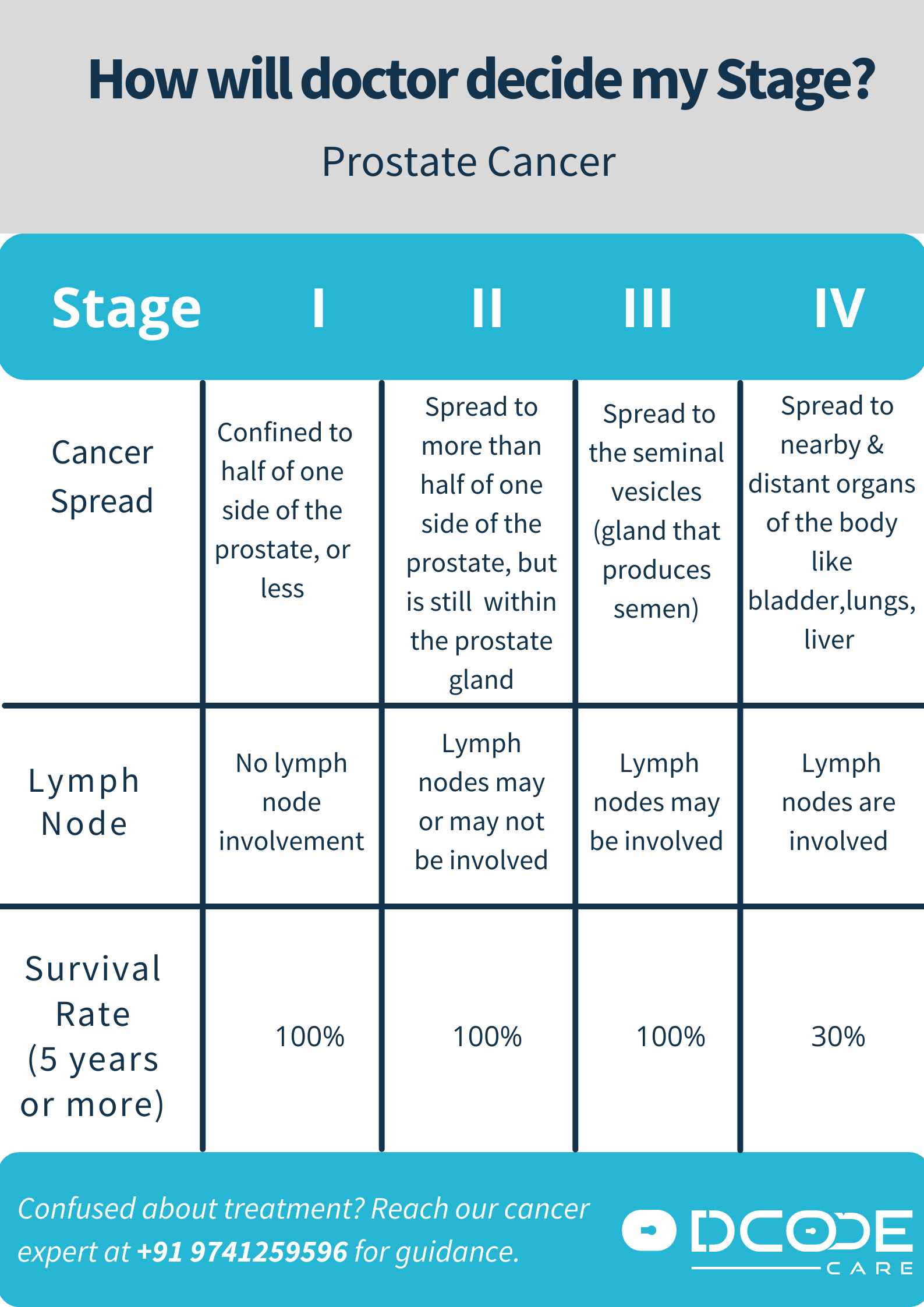Prostate Cancer

Prostate cancer is one of the top ten cancers among men in India. According to Globocan, in 2018, there were 25,696 new cases and 17,184 deaths due to prostate cancer in India.
Types of Prostate Cancer
Prostate cancer may be classified in several ways by doctors that treat cancer:
Based on cell type:
Acinar adenocarcinoma: It is the most common type of prostate cancer (90% of cases) and develops in the outer gland cells of the prostate.
Ductal adenocarcinoma: It develops in the cells that line the tubes of the prostate gland. The form of cancer tends to grow faster than acinar adenocarcinoma.
Transitional cell (urothelial) cancer: It develops in the cells of the urethra (tube connecting the bladder to the outside).
Squamous cell cancer: It develops from flat cells that cover the prostate, and grows faster than adenocarcinomas.
Small cell cancer: It is made up of small round cells and is very rare (less than 2% of all cases).
Based on the spread of cancer:
Localised prostate cancer: The cancer is contained within the prostate gland and may be low-risk, intermediate-risk or high-risk prostate cancer depending on the risk of spreading.
Locally advanced prostate cancer: The cancer has spread beyond the prostate gland. It may have spread into the tissue around the prostate or organs such as the rectum.
Metastatic prostate cancer: The cancer has spread to another part of the body, most commonly the lymph nodes or to the bones, but can also spread to other organs.
These are diagnosed by the pathologist based on a microscopic study of sample from the tumor.
Staging Of Prostate Cancer:
If you are diagnosed with prostate cancer, your doctor or cancer oncologist will run more tests to determine the extent (stage) of your cancer. Your cancer's stage is an important input in deciding on your treatment. Prostate cancer staging is complicated and this is a simplified version but your doctor will be able to explain it to you in more detail:
- Stage I: The tumour is not apparent on rectal examination or imaging, involves half of one lobe of the prostate or less with no regional lymph node metastasis or distant metastasis (spread to other organs).
- Stage II: The tumour involves more than one half of a lobe but not both lobes OR involves both lobes with No regional lymph node or distant metastasis.
- Stage III: The tumour extends through the prostate capsule (outer covering) with no regional lymph node or distant organ metastasis.
- Stage IV: The tumour is fixed or invades surrounding structures with metastasis in regional lymph node and/or metastasis to distant organs.

Sources: Cancer India; European Society of Medical Oncology (ESMO);